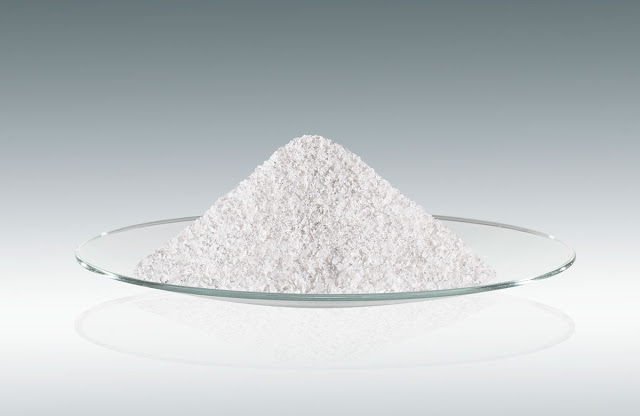Aluminum Nitride Has High Resistance To Chemical Degradation, Excellent Electrical Insulation Properties
 |
| Aluminum Nitride |
Aluminum Nitride has a hexagonal wurtzite crystal structure and is a relatively dense ceramic material. It is a good electrical insulator, which is well above the values for conventional ceramics such as BeO and SiC.
The applications of Aluminum
Nitride (AlN) are largely determined by its high thermal conductivity
and its excellent electrical insulation properties, which make it an ideal
material for many electronic devices. It is also resistant to corrosion and
wear, making it a good choice for high temperature applications. The
combination of these properties makes it an essential ceramic material for use
in hybrid circuits and power electronics, in which it is found as the
substrates and housings for semiconductor devices.
This is a relatively new ceramic
material that was discovered over 100 years ago. It has been developed into a
commercially viable product. It is a covalent bond compound that possesses high
thermal conductivity, which accounts for its electrical insulating properties. It
has a high melting point and is stable to very high temperatures in an inert
atmosphere.
It is very hard and brittle, with a
Mohs hardness of 8, it is ductile enough to be machined into complex
geometries. It is often used as an abrasive, due to its ability to remove metal
oxides and other contaminants from other materials such as silicon carbide,
tungsten carbide, and titanium diboride. It can be cut with diamond and tiN,
and is also available as an abrasive grain coated with diamond.
A key benefit of Aluminum Nitride is its high resistance to chemical degradation,
which is critical in some applications where it is used as a sealing material
for vacuum furnaces and other processing equipment. CoorsTek has engineered a
high-resistance process grade of AlN, which is capable of withstanding harsh
environments such as halogen gases and RF plasma.
Other important characteristics of aluminum
nitride include its stability to high temperatures and resistance to attack
from most mineral acids, salts, and alkalies. It is even able to withstand
attacks from molten salts such as cryolite.
Aluminum
Nitride can be produced in the green or
biscuit state, which allows it to be machined before it is fully densified.
However, the sintering process that is required to fully densify the material
causes it to shrink by 20%, which can present problems when trying to hold
tight tolerances. Therefore, the majority of industrial production of AlN is
done in the form of powders that are sprayed onto pre-machined parts. This
process is known as pressure assisted densification, or PAD.
A
new AlN-based ceramic heater was launched by Morgan Advanced Materials in 2020.
This offers high thermal shock resistance, uniform heating performance, and
excellent thermal conductivity. This new heater is suitable for several
applicatiosn such as medical equipment, aerospace, and semiconductor
processing.



Comments
Post a Comment